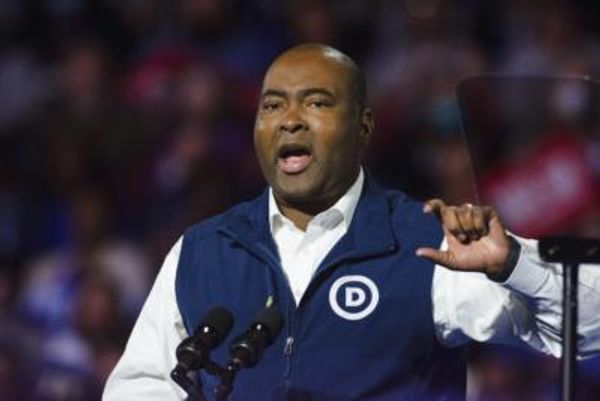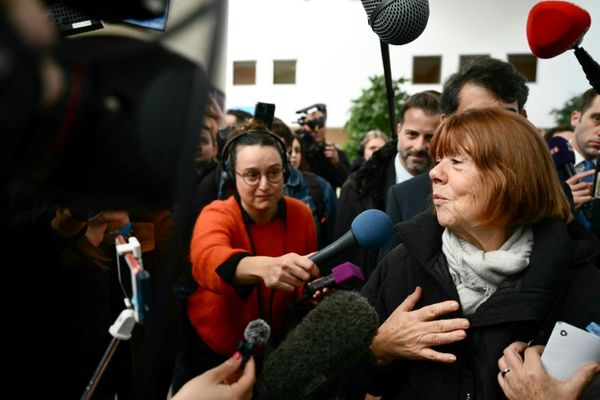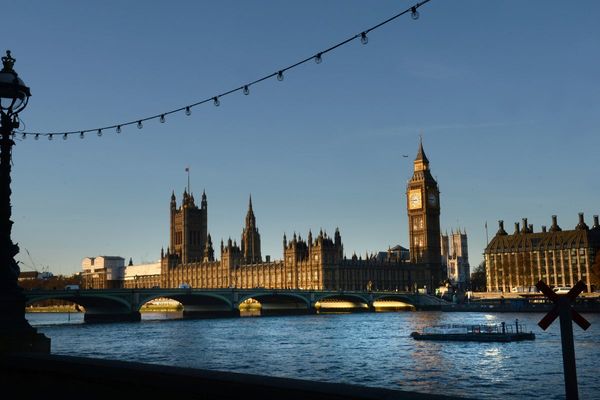WASHINGTON _ Senate Majority Leader Mitch McConnell has spent the last several months contending with bickering colleagues, a volatile president, procedural landmines and a Democratic minority working relentlessly to punish Republicans at the polls this November.
On Wednesday, the Kentucky Republican could finally claim victory _ for his president, for his party and for himself.
The Senate voted to acquit President Donald Trump on two articles of impeachment. McConnell only lost one Republican vote, Sen. Mitt Romney of Utah, on the "abuse of power" charge.
The accomplishment eclipsed the embarrassing setback for McConnell from last Friday, when Democratic threats of procedural delay tactics forced Senate Republicans to postpone their plans to acquit Trump late that night or early Saturday morning. That meant Trump had to give his State of the Union address to Congress under the shadow of the ongoing impeachment trial.
Leading up to the victory, the Senate majority leader had faced the sting of Sen. Lisa Murkowski, R-Alaska, announcing that the "Senate should be ashamed" of its handling of the impeachment proceedings, a harsh condemnation of the institution McConnell has spent his career defending.
McConnell had worked behind the scenes to prevent Chief Justice John Roberts from having to read aloud a question that would have placed in the official trial record the name of the alleged whistleblower whose complaint sparked the impeachment inquiry _ only to have Sen. Rand Paul, R-Ky., go to the Senate floor and publicly speak the whistleblower's name a few days later.
The latest blow to McConnell's influence was losing Romney on the "abuse of power" impeachment article. He had worked hard to give Romney the space to vote in favor of certain procedural motions and personally warned Trump directly not to do anything that would alienate Republican senators who might be less sympathetic to the president's cause.
McConnell told reporters he was "surprised and disappointed" by Romney's vote.
But McConnell's main goal was to keep his members together and keep Trump in office. And on Wednesday, he did both.
"He was working overtime trying to figure out where our members were and how to keep us unified," said Sen. John Cornyn of Texas, the former No. 2 Senate Republican who remains close to McConnell.
Since House Speaker Nancy Pelosi announced the House impeachment inquiry on Sept. 24, McConnell has had to contend with a variety of obstacles to keep Republicans unified for the 2 {-week showdown that was the Senate impeachment trial.
To get the trial parameters he wanted _ relatively short and without additional witness testimony that would prolong proceedings and produce information potentially damaging to the president _ McConnell had to appease his members through a variety of tactics.
He engaged in the one-on-one listening sessions for which he has now become famous, making moderates and vulnerable incumbents feel as though they had buy-in over the process.
"It was healthy for everybody to just kind of take a pause over the weekend," said Murkowski, one of the lawmakers who had asked for a delay before the final acquittal vote.
McConnell empowered the veteran Republican attorneys in the Senate to educate their colleagues on the impeachment process, frequently calling upon them to make informal presentations during closed-door lunches.
One of those senators was Ted Cruz, a Texas Republican who is also one of the chamber's most outspoken conservatives.
While Cruz has often clashed with McConnell and created a headache for leadership, on this issue he and the majority leader were on the same page. So McConnell gave Cruz, a lawyer who has argued in front of the Supreme Court, a wide berth to directly engage his colleagues on the reasons why more witnesses would be a mistake.
McConnell took regular meetings with Cruz and other Republican senators and approved of their pitch for "witness reciprocity" as a means of discouraging both parties from agitating for more testimony. If Democrats wanted to subpoena testimony from former National Security Adviser John Bolton, Republicans would get to subpoena former Vice President Joe Biden's son.
"Mitch recognized from the very beginning that calling additional witnesses ... would dramatically delay the trial and inject an enormous amount of chaos and uncertainty into it," Cruz said. "I think Mitch, very deliberately, worked to help every member of the conference appreciate those consequences."
McConnell was able to block more witness testimony with a razor-thin vote on Friday evening.
He supported other colleagues' efforts, too. During the time Pelosi was withholding the impeachment articles to prevent the start of the Senate trial, he signed onto a resolution that would have changed the chamber's rules to allow the legislative body to move to dismissal without first formally receiving the documents.
McConnell was not expected to actually change the rules even if Pelosi had continued to delay the transmittal of the impeachment articles. His allies are quick to point out that the elements of this process that weighed most heavily on McConnell dealt with wanting to preserve the integrity of the legislative body he reveres.
But in signing onto the resolution, McConnell showed he was a team player in a process over which he would have the final say.
Democrats think they can use McConnell's hardline maneuvers to argue that while they might have lost the impeachment battle, they are winning the larger political war.
Sen. Chris Van Hollen, D-Md., said Democrats successfully "exposed" McConnell for presiding over a "sham" trial.
Sen. Richard Blumenthal, D-Conn., said that while the trial's outcome was always easy to predict, "history will judge" Republicans and McConnell for their conduct.
Off Capitol Hill, a new advocacy group will seek to attack McConnell's Senate leadership.
"No one supports Mitch McConnell except for Republican incumbents," said Joshua Karp, the founder of "Fix Our Senate," the new group that will "demonstrate how the loyalty Republicans show to Mitch McConnell is detrimental to their long-term political future."
According to a recent Morning Consult poll, McConnell _ who is up for reelection in November _ is the second most unpopular senator in the country.
But to his Senate Republican colleagues, McConnell emerged stronger.
"I don't think the stakes could have been higher," Cornyn said.







